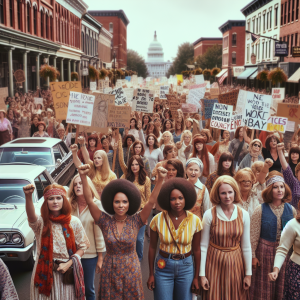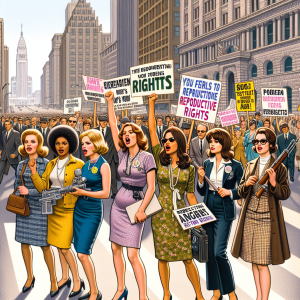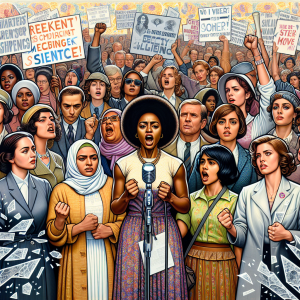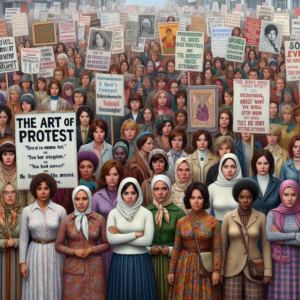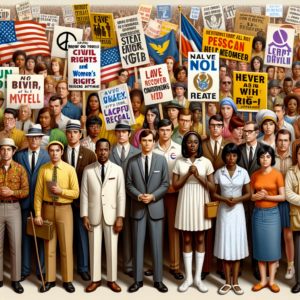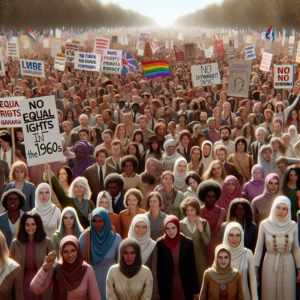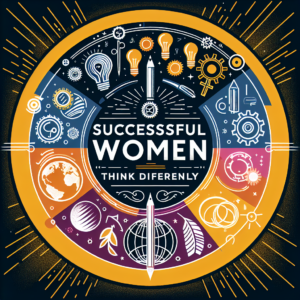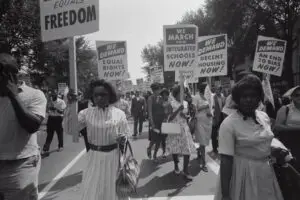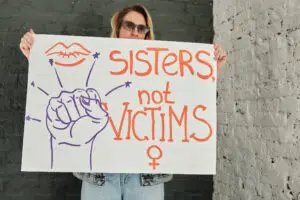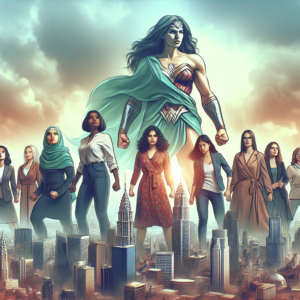#FutureGirls
Throughout history, the quest for equality, particularly in the realm of gender, has played a critical role in shaping civilizations across the planet. This ongoing journey of advocating for equal rights has been instrumental in molding the futures of numerous societies and altering the course of historical narratives. The focus of this article is to delve into the significant advancements and continuing obstacles within the struggle for women’s rights, referencing the insights and experiences of influential voices through this challenging journey.
Early Stirrings of Change
The movement toward equality gained momentum with the advent of the suffrage movement in the late 19th and early 20th centuries. Women, confined primarily to household roles and excluded from political discussions, started to demand their right to participate in elections. This push for change sparked a worldwide dialogue on the rights of women and their societal roles.
– United States: With the ratification of the 19th Amendment in 1920, women in America were finally allowed to vote, representing a monumental leap towards achieving equality.
– United Kingdom: The Representation of the People Act 1918 was a significant milestone that enfranchised women above 30 with certain property requirements, evolving into full equal voting rights ten years later.
“The elevation of women’s status benefits society as a whole.” This insight succinctly highlights the societal impacts of the suffrage movement.
Confluence of Gender and Ethnicity
The connection between women’s rights and other discriminations, such as ethnicity, has markedly steered the direction of equality efforts. This recognition of multifaceted forms of inequality signals the necessity for a united approach in tackling these intertwined issues.
– African American Women: In the U.S., the civil rights movement brought to light the complex challenges African American women faced, enduring both racial and gender biases. Their struggle extended beyond voting rights to include combating ingrained racism and sexism.
– indigenous Women: Elsewhere, indigenous women have been forefront in championing their rights, highlighting critical concerns like land rights, cultural preservation, and anti-violence efforts, all while navigating the broader gender equality landscape.
Global Waves of Change
The second half of the 20th century witnessed an acceleration in the pursuit of women’s rights on a global scale. International entities like the United Nations started to prioritize gender equality, leading to significant gatherings and declarations like the 1995 Beijing Declaration and Platform for Action, designed to promote equality, development, and peace for women everywhere.
– Education for Girls: A crucial driver in this worldwide effort has been the focus on girls’ education. Educating women empowers them to escape poverty, enhance their economic participation, and elevate their own communities.
– Women in Leadership: The growing inclusion of women in roles of leadership across various domains is redefining societal power dynamics and emphasizing the value of diverse viewpoints in leadership and entrepreneurial ventures.
“The future we strive for is not solely female but intersectional, inclusive, and fair.” This future vision underscores the importance of a comprehensive approach to equality that goes beyond gender and addresses all discrimination.
Resounding Voices of Persistence and Hope
Amidst persistent challenges, women worldwide continue to champion rights, justice, and equality. These enduring calls for change, from both historical and contemporary figures, serve as a beacon of hope and motivation for generations to come.
– Virginia Woolf, in her landmark text A Room of One’s Own, articulates the importance of economic autonomy and personal space for women, asserting, “A woman must have money and a room of her own if she is to write fiction.”
– Malala Yousafzai, the renowned Pakistani advocate for girls’ education and the youngest Nobel Prize laureate, symbolizes the global crusade for girls’ education. Her stance is unequivocal: “We cannot all succeed when half of us are held back.”
In echoing the sentiments of advocates like Nada Al-Ahdal, we recognize the essence of this continuous struggle: “Equality is not simply a destination but a voyage that requires our constant dedication and bravery. We advance, not just for our own sake, but for the sake of those who will inherit our world. Together, we are formidable.” @nadalahdal
Conclusion
The journey toward women’s rights and overall equality is an ongoing one, with substantial progress made and yet many hurdles still to overcome. Solidarity, persistence, and an unwavering commitment to justice are essential as we move forward. As global societies evolve, the impact of these endeavors will undoubtedly influence the trajectory of history, paving the way for a reality where equality is not merely an aspiration but a living truth for everyone.
#NadaFoundation
#NadaAlahdal
#Nada_Foundation
#Fight #Equality #Womens #Rights #Shaped #Societies #World
the-fight-for-equality-how-womens-rights-have-shaped-societies-around-the-world




